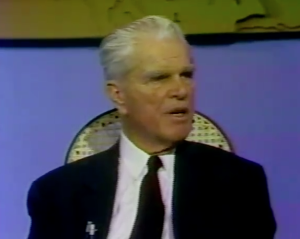I am reminded of some sage advice from a Kentucky judge that was originally published in his book in 1963 – “Kentucky Lawyer.” The book can be read in one evening but do not be fooled by its size for its wisdom is timeless and a reminder of what the profession of law can and should be. If I had the honor to mentor a young lawyer, I would make this book required reading. If a newly elected judge should ask me if there is a book on the art of judging, I would commend him to read this book with a reminder of Luke 12:48 “For unto whomsoever much is given, of him shall be much required.”
FROM PAGES 9-10:
In my years on the bench I have never once had a show of discourtesy or disrespect. I fully realize that this is not because of me personally but because of the high office which I am privileged to hold. The office receives this respect, and justly so, because of the character and the ability of the men who have preceded me in the office. It is due to them and their learning, erudition and fairness, that the bar accepts me on the terms which my predecessors have established. I am constantly aware of this, and my only fear is that in some careless moment I may say or do something, either on or off the bench, that could bring the slightest disrespect to the office which has stood so high in Kentucky jurisprudence for so long.
* * *
There have been instances, I know, in which the judge seems to feel that the bench is a stage from which he, as chief actor in the drama of the trial, must perform as a wit or a tyrant. There have been judges who have become obsessed with a desire to be “characters” and have indulged in witticisms or abuses that are fitting neither the dignity of the office nor the stature of the personality that temporarily occupies it.
The story is told of an occasion in the trial of an important lawsuit when the judge in a fit of anger, sharply and with excuse, severely rebuked one of the attorneys. The lawyer then turned his back on the court and walked toward the door of the courtroom. The judge called out, “Sir, are you trying to show your contempt for the court?”
“No, Your Honor, I’m trying to conceal it,” was the reply.
An “overspeaking judge”
Sir Francis Bacon in his essay on the judiciary said: “An overspeaking judge is no well-tuned cymbal.” Those of our profession who occupy the bench should be constantly aware of this striking metaphor. It is very tempting at times for a judge to make witty or sarcastic remarks to the delight of the spectators; however, a judge should remember that such speech is beneath the dignity of the court and always at the expense of someone who cannot answer back. The situation is something like that of a boxer who hits a handcuffed opponent.
Pages 9 and 10, Kentucky Lawyer.
Mac goes on to admit a failing of his own in this regard which was followed immediately by his acknowledgement of the transgression and a sincere apology.
You can purchase this book from Amazon Book by clicking here. I do not get a commission.
Call me Mac. A Biography of Judge Mac Swinford Presentation by Professor William Fortune at the 2013 KBA Covention


